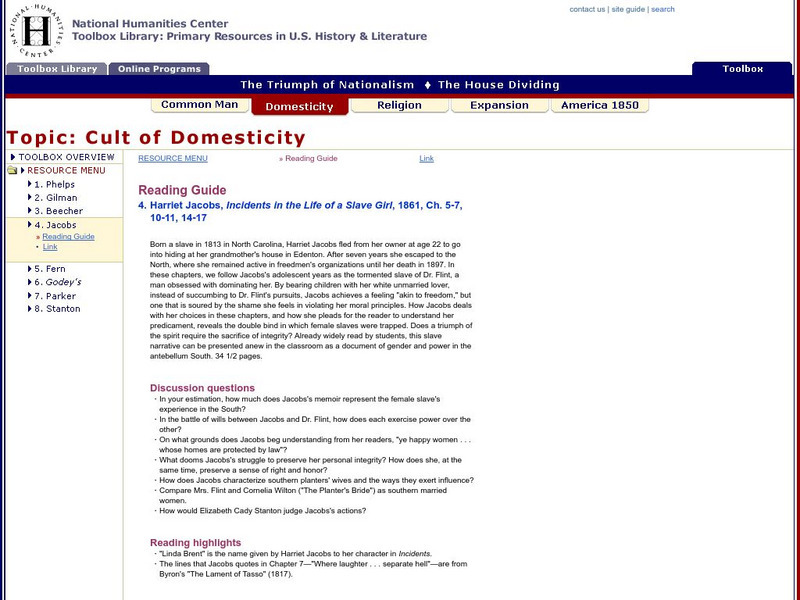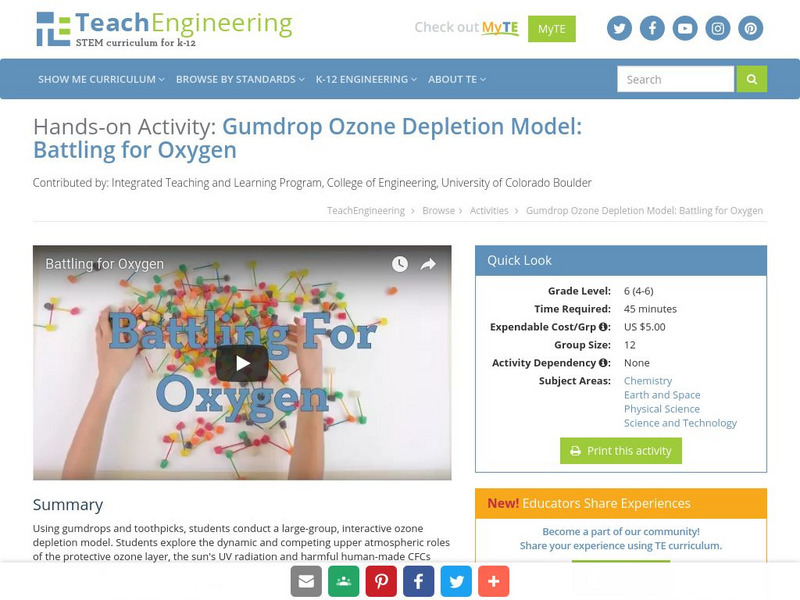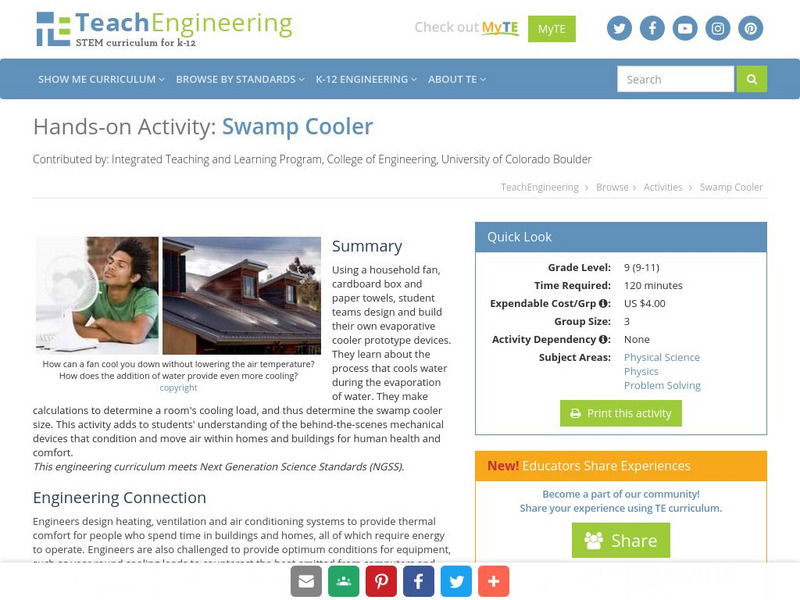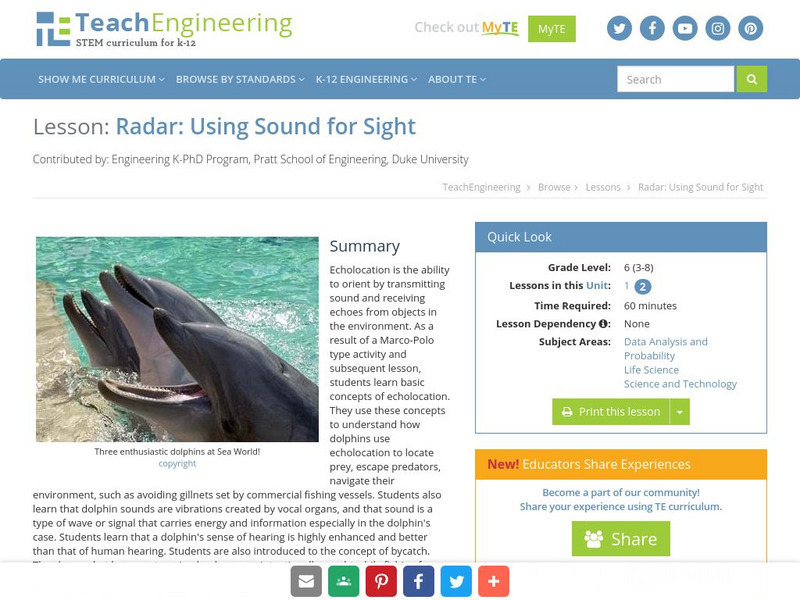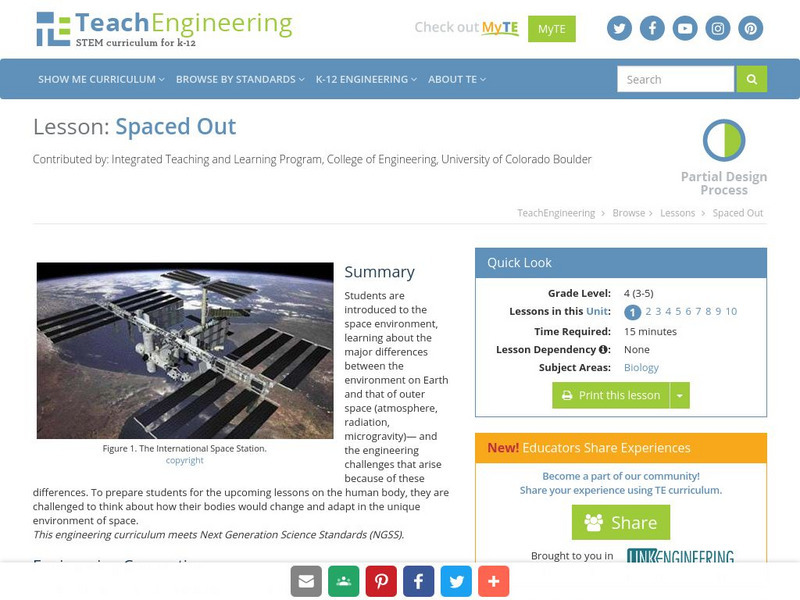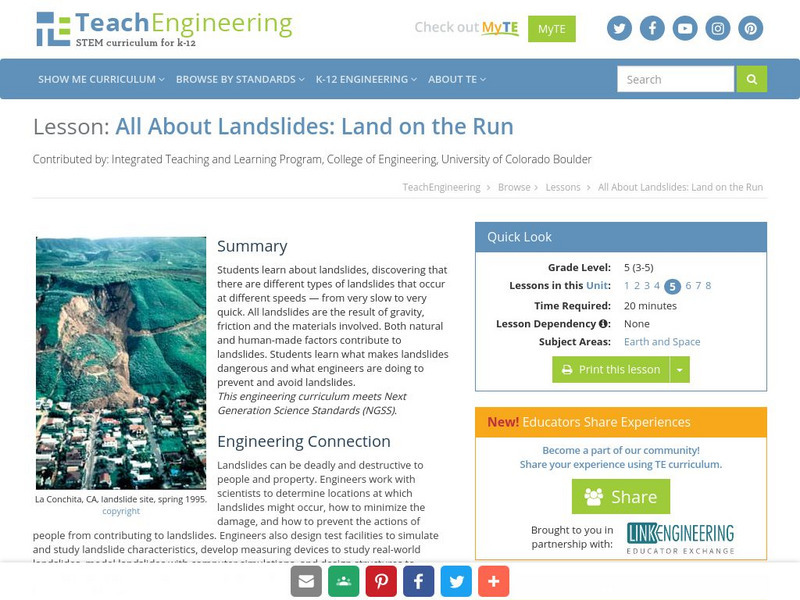National Humanities Center
National Humanities Center: Toolbox Library: Harriet Jacobs: "Incidents in the Life of a Slave Girl," 1861
Several chapters from a slave narrative by Harriet Jacobs examining her abuse, her integrity, and her eventual escape from brutality, all of which raise important questions about power, equality, and gender roles in the mid-nineteenth...
TeachEngineering
Teach Engineering: What Do Bread and Beer Have in Common?
Young scholars are presented with information that will allow them to recognize that yeasts are unicellular organisms that are useful to humans. In fact, their usefulness is derived from the contrast between the way yeast cells and human...
Other
Lehigh University: Climate Change
An inquiry-based science unit for middle school students centered on weather and climate. The lessons integrate technology and lab activities while teaching about Earth system energy balance, greenhouse gases, paleoclimatology, and how...
TeachEngineering
Teach Engineering: Battling for Oxygen
Using gumdrops and toothpicks, students conduct a large-group, interactive ozone depletion model. Students explore the dynamic and competing upper atmospheric roles of the protective ozone layer, the sun's UV radiation and harmful...
TeachEngineering
Teach Engineering: Swamp Cooler
Using a household fan, cardboard box and paper towels, student teams design and build an evaporative cooler (swamp cooler). They learn about the process that cools water during the evaporation of water. They make calculations to...
TeachEngineering
Teach Engineering: Caught in the Net
Bycatch can be defined as the act of unintentionally catching certain living creatures using fishing gear. A bycatched species is distinguished from a target species (the animal the gear is intended to catch) because it is not sold or...
TeachEngineering
Teach Engineering: Sound for Sight
Echolocation is the ability to orient by transmitting sound and receiving echoes from objects in the environment. As a result of a Marco-Polo type activity and subsequent lesson, students learn basic concepts of echolocation. They use...
TeachEngineering
Teach Engineering: What's Dominant?
In a class discussion format, the teacher presents background information about basic human genetics. The number of chromosomes in both body cells and egg and sperm cells is covered, as well as the concept of dominant and recessive...
TeachEngineering
Teach Engineering: Spaced Out
This lesson introduces young scholars to the space environment. It covers the major differences between the environment on Earth and that of outer space and the engineering challenges that arise because of these discrepancies. In order...
TeachEngineering
Teach Engineering: Manned Mission to Mars
This lesson will discuss the details for a possible future manned mission to Mars. The human risks are discussed and evaluated to minimize danger to astronauts. A specialized launch schedule is provided and the different professions of...
TeachEngineering
Teach Engineering: Land on the Run
Students learn about landslides, discovering that there are different types of landslides that occur at different speeds - from very slow to very quick. All landslides are the result of gravity, friction and the materials involved. Both...
TeachEngineering
Teach Engineering: Carbon Cycles
Students are introduced to the concept of energy cycles by learning about the carbon cycle. They will learn how carbon atoms travel through the geological (ancient) carbon cycle and the biological/physical carbon cycle. Students will...
CK-12 Foundation
Ck 12: Epsid World Geo 2019
Flexbooks 2.0 are interactive, customizable, digital textbooks. Flexbooks are standards-aligned. Flexi, a student tutor, is integrated into each book to guide you on your learning journey. Flexi can assist in learning, answer questions,...
University of Pennsylvania
Univ. Of Penn: Hysteria and Ideology in "The Crucible"
This website, which is provided for by the University of Pennsylvania, reproduces an article by Richard Hayes from "Commonweal" in 1953. A good opportunity to see a review of "The Crucible" from the time the play originally appeared.
PBS
Pbs Learning Media: La'ona De Wilde: Environmental Biologist
In this video profile produced for Teachers' Domain, meet La'ona DeWilde, an environmental biologist who integrates her Athabascan heritage and her Western scientific training to help remote Alaskan villages address environmental issues.
Other
Grays Harbor College: Writing Essays: Four Tips
This resource explores four tips for writers: "Center Your Thinking," "Organize Your Thinking," "Specify Your Thoughts," and "Present Your Thoughts Clearly." The information is presented in an easy-to-follow outline with examples given...
